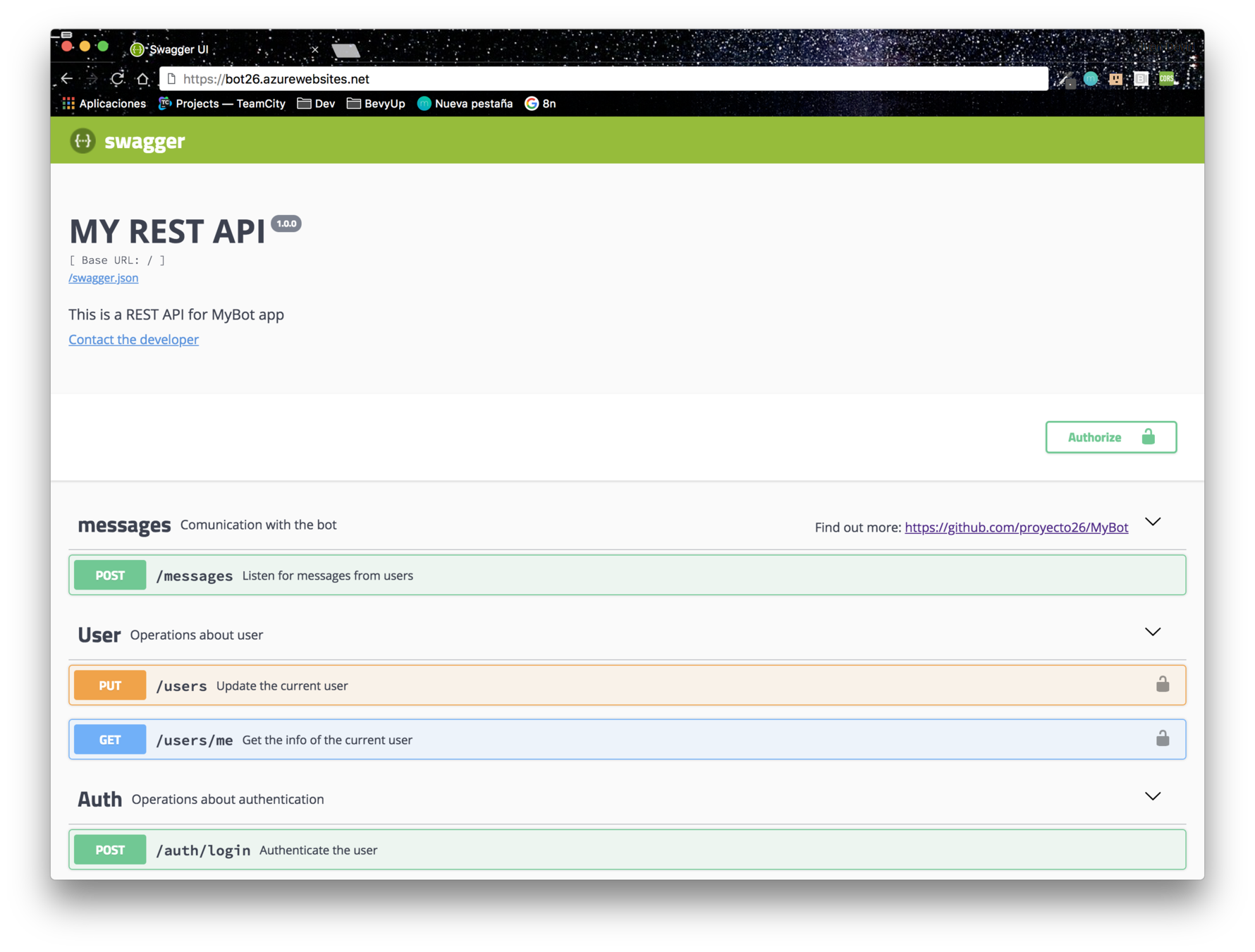My first
Multi-language Bot!


Juan David Nicholls
Software Engineer
@ BevyUp (Acquired by Nordstrom)
We need something simple, but scalable...

We need to document our APIs...



How can I autodocument my endpoints from the code?
var swaggerUi = require('swagger-ui-express');
var swagger = require('swagger-spec-express');We add some packages...
Initialize Swagger
swagger.initialise(app, {
title: 'MY REST API',
version: '1.0.0',
description: 'This is a REST API for MyBot app',
contact: {
email: 'jdnichollsc@hotmail.com'
},
securityDefinitions: {
bearerAuth: {
type: "apiKey",
name: "Authorization",
description: "HTTP Bearer Authentication"
}
},
defaultSecurity: "bearerAuth",
});We can even define our authentication based on JWT tokens, etc ...
We add our endpoints...
app.use('/users', userRoute);
app.use('/auth', authRoute);
//...
app.get('/swagger.json', function (err, res) {
res.status(200).json(swagger.json());
});
app.use('/', swaggerUi.serve, swaggerUi.setup(null, {
swaggerUrl: '/swagger.json',
swaggerOptions: {
validatorUrl : null
}
}));
swagger.compile();And finally we describe our routes from the code
var express = require('express');
var router = express.Router();
var swagger = require('swagger-spec-express');
swagger.swaggerize(router);
swagger.common.addTag({
name: "Auth",
description: "Operations about authentication"
});router.post('/login', async function (req, res, next) {
//code code code
}).describe({
tags: ["Auth"],
summary: "Authenticate the user",
description: "Validate if exist an user with that email and password",
consumes: ["application/json"],
produces: ["application/json"],
parameters: [
{
name: "body",
in: "body",
schema: {
type: "object",
properties: {
email: { type: "string", format: "email" },
password: { type: "string" }
}
}
}
],
responses: {
200: {
description: "Returns the token and the info of the user"
},
404: {
description: "The user doesn't exist with that email and password"
}
}
});router.post('/signup', async function (req, res, next) {
//code code code
}).describe({
tags: ["Auth"],
summary: "Register a new user",
description: "Create a new user from the app",
consumes: ["application/json"],
produces: ["application/json"],
parameters: [
{
name: "body",
in: "body",
schema: {
$ref: "#/definitions/User"
}
}
],
responses: {
200: {
description: "Returns the token and the info of the user"
},
500: {
description: "Returns an error trying to create a new user"
}
}
});Additionally we can create our own definitions
swagger.common.addModel({
"name": "User",
"type": "object",
"properties": {
"document": { "type": "string" },
"name": { "type": "string" },
"cellPhone": { "type": "string" },
"homePhone": { "type": "string" },
"email": { "type": "string", "format": "email" },
"password": { "type": "string" }
}
});And we definitely need to reach our users


MyBot to the rescue!
